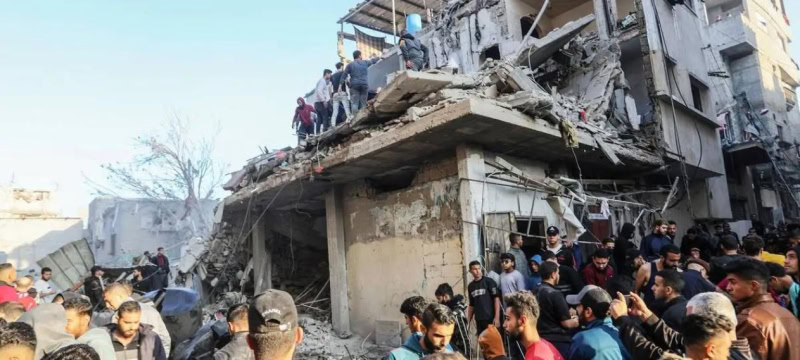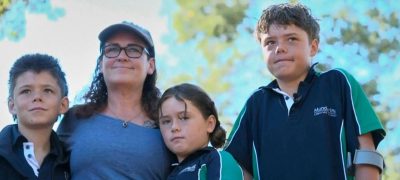On Thursday, Israeli strikes on two Gaza Schools housing displaced people resulted in over a dozen fatalities, according to Palestinian officials. The attacks on the Abdul Fattah Hamoud and al-Zahra schools killed at least 16 and injured 37.
The Israeli military claimed these schools were being used by Hamas for planning and executing attacks. Many displaced Palestinians have taken refuge in these schools, seeking safety and resources amidst the ongoing conflict.
Read more: New York County Prohibits Masks for Gaza War Protesters
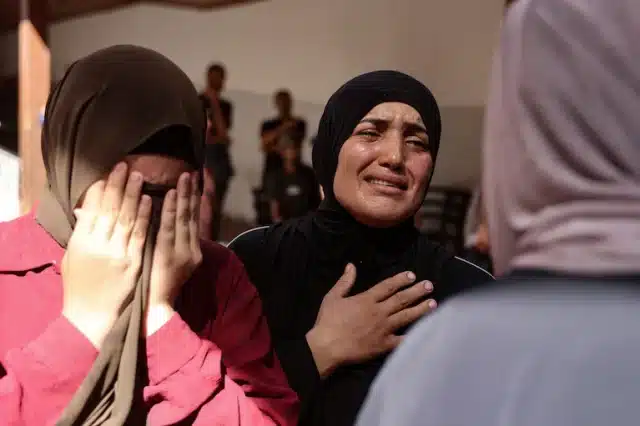
Recent weeks have seen a significant increase in attacks on schools, with Israel targeting seven schools in just eight days before the recent attacks, according to the U.N. Human Rights Office. A U.N. report expressed horror at the escalation, which has resulted in the deaths of at least 163 Palestinians, including many women and children, in strikes on 17 schools over the past month.
Rights groups argue that Israel is failing to adequately distinguish between civilians and combatants in Gaza, where local health officials report at least 39,699 deaths, predominantly women and children. The Israel Defense Forces stated that they took multiple measures to reduce civilian harm in recent strikes, including using precise munitions and intelligence.
Despite these measures, Mazen al-Fayoumi, a father of 13 who had been sheltering with his family in a Gaza City school since their home was destroyed in December, lost his 17-year-old daughter, son-in-law, and niece in a recent strike. The targeted classroom was reportedly used by Hamas personnel, but it remains unclear who was inside.
Hamas has condemned the strikes as attacks on civilians in shelters but has not addressed the allegations of using these buildings for military purposes. Israel claims Hamas is regrouping in northern Gaza and has re-entered previously cleared areas.
Juliette Touma from the U.N. Relief and Works Agency for Palestinian refugees noted a disturbing trend, with 70% of their schools in Gaza being hit since the war began. These schools, which primarily shelter displaced Palestinians, should be protected as U.N. facilities.
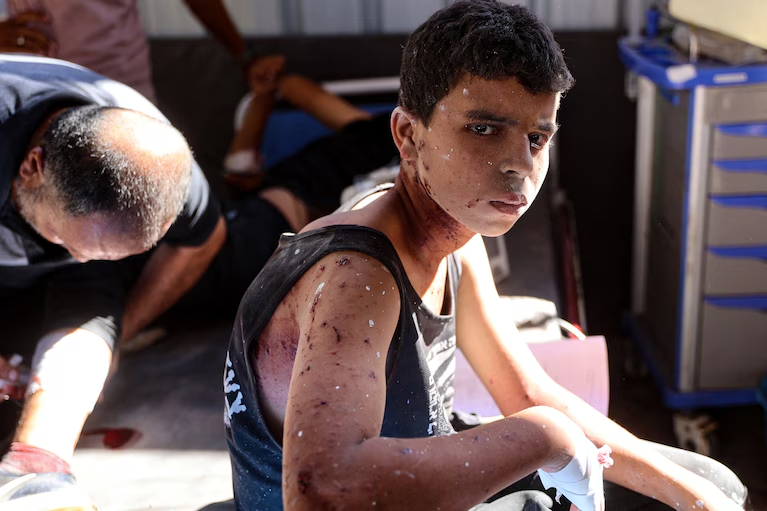
The Israeli military has recently been issuing immediate statements claiming that buildings hit by strikes are being used by Hamas. These claims, while serious, are not independently verified by the U.N., which has no means to investigate them. What is consistently observed is that civilians, including women and children, are being affected whenever these schools and buildings are targeted.
On Thursday, Youssif Saudi, a 22-year-old freelance videographer, was at al-Ahli Hospital when missiles struck nearby. He arrived at al-Zahra school before the ambulances and saw people trying to rescue survivors from the rubble, including at least 10 bodies of women and children. Two missiles hit classrooms where about a thousand people were sheltering.
At the Abdul Fattah Hamoud school, Saudi recorded footage of a man collecting body parts, highlighting the severity of the destruction and the presence of human remains.
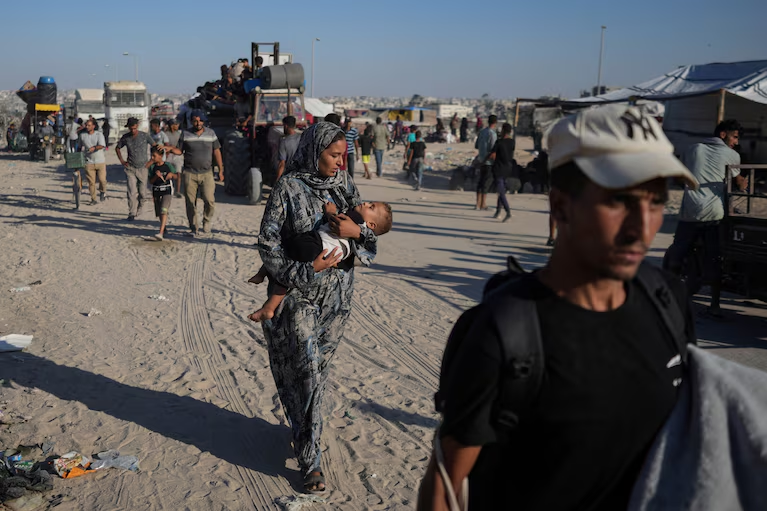
As the conflict persists, Israel has instructed civilians to move to increasingly smaller areas, resulting in overcrowded schools where hundreds of people may have to share a single bathroom, according to Juliette Touma.
On Thursday, the IDF issued new evacuation orders for parts of Khan Younis in southern Gaza. IDF spokesman Avichay Adraee stated on X that the military will act decisively against areas from which Hamas and other groups are launching rockets.
Saed al-Aqqad, a 32-year-old resident of Khan Younis who now faces displacement again, expressed frustration. After being displaced seven times and finally returning to his home, he is reluctant to leave again. He described the struggles of finding basic necessities like water, gas, and food, and stated that the fear of death is overwhelming, but he prefers to face it in his own home.


